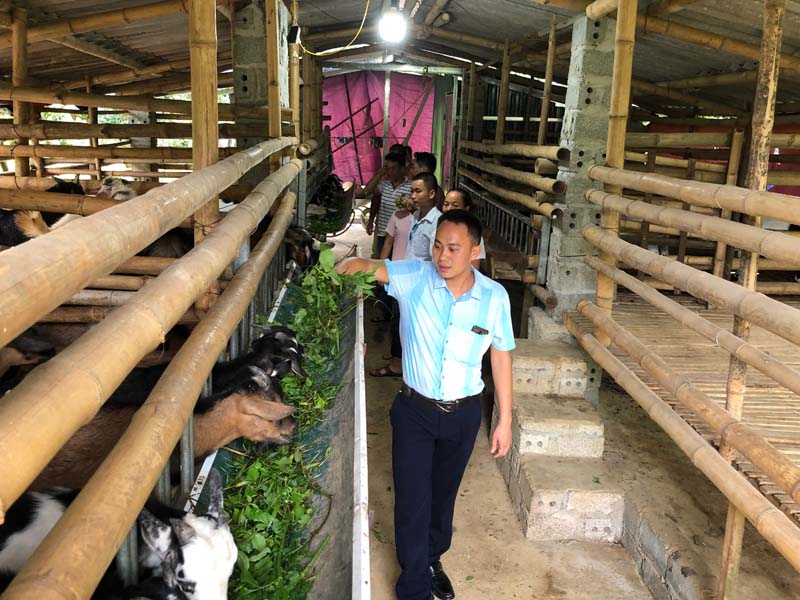
(HBO) - With mountainous and rocky terrain, many communes in Luong Son district have favourable conditions to raise goats following the concentrated farming method. The local herd of goats is estimated to have about 8,000 heads, accounting for 15.7 percent of Hoa Binh’s. This year, the district has successfully built its ‘Luong Son mountain goat’ collective brand.
At the end of August, goat products from Yen Lich hamlet in
Long Son commune are the first of their kind in Luong Son to be accredited of
meeting the VietGAP standard. The goods joined a safe meat production and
distribution chain this year.
 Safe goat meat
produced by Long Son’s Hoa Binh agricultural cooperative is favoured by
consumers in Hanoi.
Safe goat meat
produced by Long Son’s Hoa Binh agricultural cooperative is favoured by
consumers in Hanoi.
Nature-based goat farming in Long Son’s Yen Lich hamlet
dates back years ago. Originally, it was small-scale and scattered. Two years
ago, locals began thinking of raising their herds in line with market demand.
Many young farmers ventured expanding their families’ farming scale and took
advantage from the Government’s support policy via several startup projects.
In addition to following the VietGAP (Vietnamese Good
Agricultural Practices), product advertisement and origin traceability are also
important. Local cooperatives have been supported to label origin stamps on
their products. Their production has been introduced on the VTV1 channel’s
clean farming programme; while their products are available at several chains
of safe food stores like the Eco Food, HG Hifood and Huong Rung, as well as a
number of restaurants in Hanoi.
These products will soon be added to the provincial online system for tracing
farm produce origin at http://hb.check.net.vn./.
In Lac Thuy district, communes have been succeeded in promoting their One Commune-One Product (OCOP) products while others are still struggling to position their typical farming products in market. Some communes in the district still fail to have their products met OCOP programme’s requirements, while others have seen their certifications expired.
The inspectorate agency of Hoa Binh province has issued Official Dispatch No. 1090/TTr-PCTN to provincial departments, agencies, localities, business associations, enterprises, and investors regarding measures to improve informal component indexes of the Provincial Competitiveness Index (PCI).
Hoa Binh is taking concrete steps to improve its investment environment, with a strong focus on supporting businesses, settling obstacles for strategic investors, and creating opportunities for robust development in the coming years.
Under the blazing early summer sun, the construction site of Nhuan Trach Industrial Park (IP) in Luong Son district is abuzz with activities from dawn to dusk, a testament to the determination of the investor to meet their construction targets on schedule.



 Safe goat meat
produced by Long Son’s Hoa Binh agricultural cooperative is favoured by
consumers in Hanoi.
Safe goat meat
produced by Long Son’s Hoa Binh agricultural cooperative is favoured by
consumers in Hanoi.